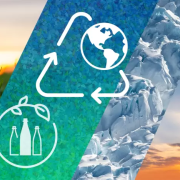Labs & Groups
- Advanced Laser Technology for Atmospheric Research (Fried)
- Amino Acid Geochronology (Miller)
- AMS Radiocarbon Preparation & Research (Lehman)
- Coastal Oceanography Modeling (Moriarty)
- Core Processing & Sedimentology (Roth & Anderson)
- Cryosphere and Surface Processes (Overeem et al.)
- Diatoms (Spaulding)
- Ecohydrology (Barnard)
- Hydroecology Science & Engineering (Gooseff) ↪︎
- ICP-MS Trace Metals (Marchitto)
- Micropaleontology (Jennings)
- Mountain Hydrology (Molotch, Musselman, & Rittger)
- Mountain Limnology Lab (Oleksy) ↪︎
- Ocean Biogeochemistry (Lovenduski)
- Organic Geochemistry (Sepúlveda)
- Organic Matter Spectroscopy (McKnight)
- Polar & Paleoclimate Modeling (Jahn)
- Stable Isotope Lab
- Suding Lab - plant community ecology ↪︎
- Taylor Lab - evolutionary biology & genetics of birds ↪︎
Programs
- Center for the Geochemical Analysis of the Global Environment (GAGE)
- Community Surface Dynamics Modeling System (CSDMS)
- Consortium for Capacity Building (CCB)
- DFO - Flood Observatory
- Dynamic Water critical zone project
- McMurdo Dry Valleys Long-Term Ecological Research (MCM LTER)
- Mountain Research Station (MRS)
- Niwot Ridge Long-Term Ecological Research (NWT LTER)






